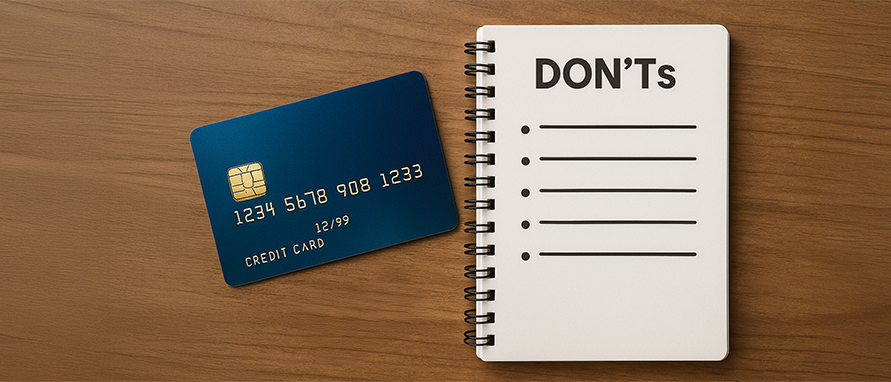A credit card can be a useful tool for managing finances, but if not used wisely, it can have a negative impact on your credit score. Your credit score is a reflection of your financial behaviour, and credit cards play a significant role in determining this score.
Several factors related to how you manage your credit card can influence this score, and understanding these is essential to maintaining a healthy financial profile.
1. Late Payments and Their Impact on Your Credit Score
One of the most significant factors affecting your credit score is your payment history. If you miss or delay a payment on your credit card, it can harm your credit score. For example, if you miss a payment for a month, your bank may report it to the credit bureaus. This marks your credit history as inconsistent, making it more difficult for you to get loans in the future.
For example, if you’re due to pay ₹10,000 but forget to do so by the due date, the bank could report this late payment. Even if you pay the amount soon after, the record of the delay will stay on your credit report for up to six years, affecting your score.
To avoid this, you can set up automatic payments or reminders on your phone to ensure your payments are always on time.
2. High Credit Utilisation and Its Effect on Creditability
Credit utilisation refers to the percentage of your credit limit that you’re using. High credit utilisation can hurt your credit score, even if you always make timely payments. For example, if your credit limit is ₹1,00,000, and you consistently carry a balance of ₹60,000, your credit utilisation is 60%. This indicates to lenders that you may be relying too much on credit, which could be seen as risky.
Let's say you're using 75% of your available credit. Even though you make your payments on time, a high utilisation ratio like this can suggest financial strain and lead to a lower credit score.
Try to keep your credit usage under 30% of your credit limit. If needed, request a higher credit limit from your card issuer to lower your ratio.
3. Multiple Credit Card Applications in a Short Period
When you apply for a credit card, the bank conducts a hard enquiry on your credit report. This is a formal check into your credit history to assess your suitability for credit. While a single enquiry may not drastically affect your credit score, applying for multiple credit cards in a short period can have a negative impact. For example, if you apply for three different cards in a month, each application results in a hard enquiry, which can lower your score by a few points.
To put it simply: if lenders see multiple applications within a short timeframe, they might assume you're struggling financially or desperately seeking credit, which can raise concerns about your ability to manage debt. This could cause lenders to view you as a higher risk borrower.
Instead of applying for credit cards frequently, consider evaluating your needs and applying for the right card only when necessary. Always check your eligibility before applying to reduce unnecessary hard enquiries.
4. Carrying a High Balance on Your Credit Cards
When you carry a high balance on your credit cards, it not only increases your credit utilisation ratio but also suggests to lenders that you're not fully managing your debt. For instance, if you’ve accumulated ₹80,000 in debt on a card with a ₹100,000 limit, even if you’re paying the minimum, the outstanding balance is quite high compared to the limit. This can hurt your credit score.
Over time, carrying large amounts of debt can lead to an increased risk of missing payments, and the interest you accumulate will make it harder to pay off the balance in full. Additionally, if the debt becomes unmanageable, it could lead to financial stress.
Aim to pay off your balance each month to avoid accumulating debt. If this isn’t feasible, work towards paying more than the minimum payment to reduce your outstanding balance.
5. Closing Old Credit Card Accounts
Closing old credit card accounts may seem like a good idea, especially if you no longer use them, but it can actually hurt your credit score. One of the key factors in determining your credit score is the length of your credit history.
The longer your credit history, the better it looks to potential lenders. When you close an old credit card account, it shortens your overall credit history. This can have a negative impact, especially if it was one of your longest-held accounts.
Additionally, closing an account reduces your total available credit, which can increase your credit utilisation ratio. For example, if your total credit limit across all cards is ₹2,00,000 and you close one card with a ₹50,000 limit, your available credit is reduced, which can increase your utilisation rate if your spending remains the same.
If you don’t need the card, consider keeping it open with zero balance. This will help maintain your credit history and keep your credit utilisation ratio low.
















